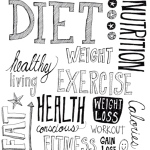Hello everyone.
I have been on the 2:5 for about 6 months and lost about 10kg (over 20lbs) So thank you Dr Mosley!
A lot of the reviews of the fasting lifesyle seem to suggest that it is just a way to reduce average weekly calories, but I’m sure most of you think there is more going on than simple calorie reduction.
During the last 10 days I didn’t fast as I was on holiday traveling and found it difficult. Amazingly I did not gain any weight. This has happend on two occasions during the last 6 months.
I think the fasting days are forcing the body to relearn how to burn fat. I’m a bit confused about the correct scientific terms for this ‘lypolysis’ is I believe the breackdown of fats (into amino acids) and ketosis the burning of
fat as fuel.
What ever the terminology it seems like the fasting days teach the body a long forgotten trick of switching from available glucose derived from what we just ate, to reserves stored as fat.
I suggest that this trait applies to non fast days too, hence the lack of weigh gain during holidays.
I used to do a bit of distance running and am quite familiar with the concept of ‘hitting the wall’. This is when a runner runs out of glucose and has to switch to fat burning (around the 18mile mark). Often that process is difficult, I have had to sit on the ground for about 3 minutes until my legs felt like they would work again.
I’m not running now so I can’t try a quick marathon to see if the diet has helped with the switch.
I welcome your thoughts.
Good luck
Martin.
Perhaps Dr Mosely could weigh in on this with some scientific evidence.






6:32 pm
20 Nov 13